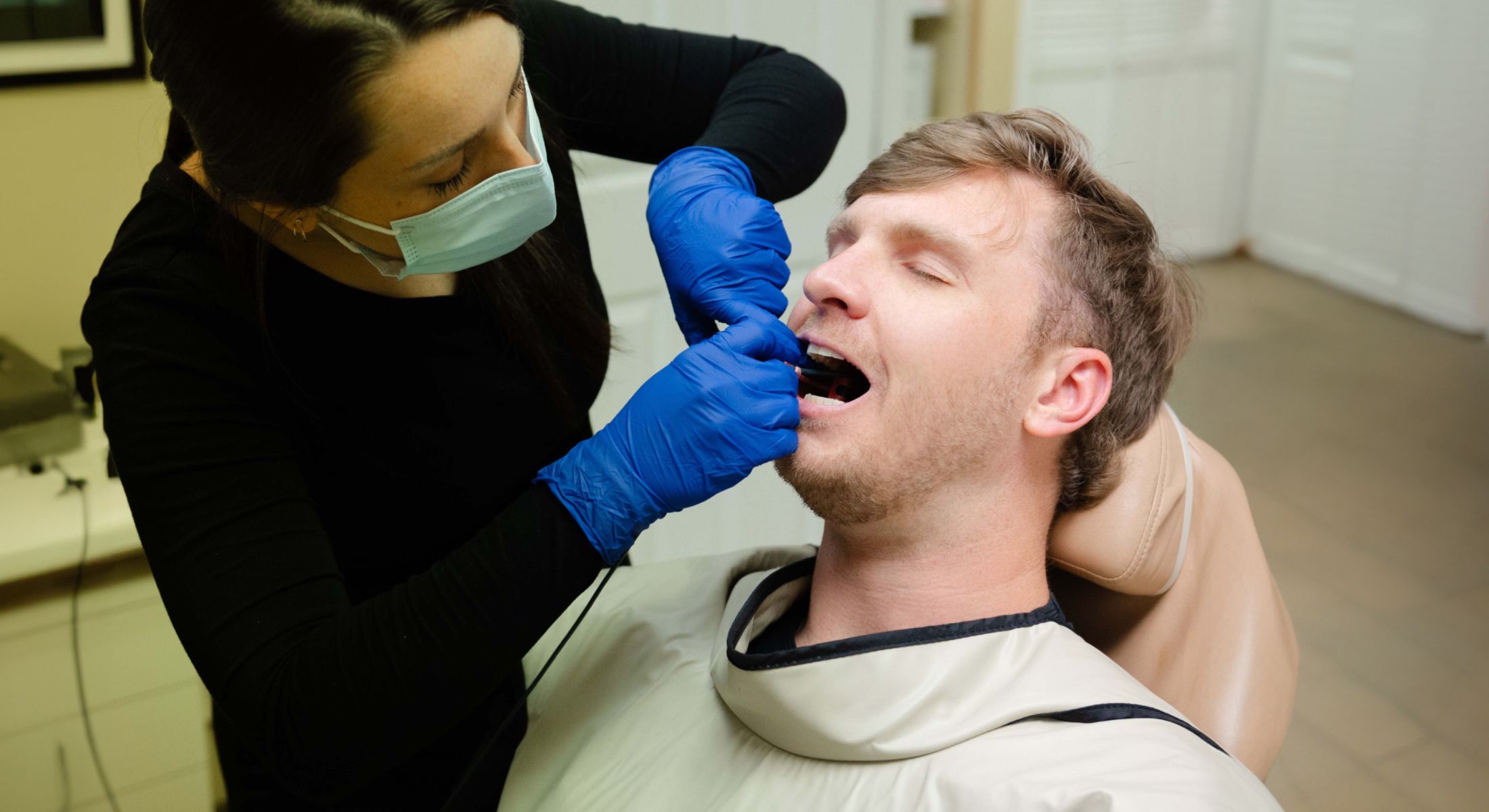



At Clifty Family Dental, we understand the thought of a tooth extraction can be daunting, but our team is here to ensure your experience is as comfortable and stress-free as possible. Tooth extractions are sometimes necessary to preserve your oral health and prevent more severe issues. Our experienced and compassionate team, led by Dr. Ranney, delivers personalized care tailored to your unique needs, whether it's due to advanced tooth decay, damage, or overcrowding. We take pride in making patients feel at ease and confident in their treatment. Learn more about our Madison tooth extractions on this page, or schedule a consultation with us to discuss your options.

On the day of your extraction, Dr. Ranney and our team will ensure you’re comfortable and fully informed about the process. We begin by administering local anesthesia to numb the area around the tooth, providing a pain-free experience. Dr. Ranney will use specialized instruments to gently loosen and remove the tooth for a simple extraction. If a surgical extraction is needed, a small incision may be made in the gum to access the tooth, and in some cases, the tooth may be sectioned into smaller pieces for easier removal. The procedure typically takes between 20 and 40 minutes, depending on the complexity of the extraction. Afterward, we’ll provide you with clear aftercare instructions to promote healing.
A tooth extraction involves the removal of a tooth from its socket in the bone. Extractions are typically performed when a tooth is too damaged by decay or trauma to be saved or when it’s causing overcrowding in the mouth. At Clifty Family Dental, we offer simple extractions, where the tooth is visible and easily accessible, and surgical extractions, which may involve removing gum or bone tissue to access a tooth that hasn’t fully erupted. The primary goal of an extraction is to prevent further complications and maintain or restore oral health.


Dr. Ranney is dedicated to preserving your natural teeth whenever possible, using advanced methods such as fillings, root canals, and crowns to repair and restore teeth with problems. However, in cases where a tooth is too severely damaged, decayed, or infected, an extraction may be the best option to protect your overall health and prevent further complications. Extractions may also be necessary to address overcrowding in preparation for orthodontic treatments. Dr. Ranney will thoroughly evaluate your situation and recommend the most appropriate treatment to ensure the best outcome for your smile.
Extractions may be necessary for several reasons:
Baby teeth that haven’t fallen out naturally, preventing the permanent teeth from emerging properly.
Undergoing a dental extraction can provide significant benefits, particularly when it comes to maintaining and improving your oral health. Removing a severely decayed or damaged tooth can prevent infection and alleviate pain, while extracting teeth before orthodontic treatment can help ensure better alignment and more effective results. Additionally, wisdom teeth extractions can prevent future issues such as impaction, misalignment, and overcrowding. By addressing these concerns early with an extraction, you can avoid more complex and costly procedures in the future.
You may be a candidate for a dental extraction if you have a tooth that is too damaged or decayed to be restored, or if you’re experiencing pain and discomfort due to overcrowding or impacted wisdom teeth. Ideal candidates are those in good overall health who can heal effectively after the procedure. However, certain medical conditions, such as uncontrolled diabetes or bleeding disorders, may require special considerations. During your consultation for your tooth extraction Madison dentist, Dr. Ranney, and our dental team, will conduct a thorough evaluation to determine if a dental extraction is the best option for your specific situation, ensuring that all risks and benefits are carefully weighed.
At Clifty Family Dental, we’re committed to providing exceptional care during every step of your dental extraction procedure. Dr. Ranney and our compassionate team are here to answer all your questions and ensure a positive experience from start to finish.

Recovery from a dental extraction typically takes about 7-10 days. During this time, it’s important to follow the aftercare instructions provided by our team to promote healing and prevent complications. This includes avoiding strenuous activity, eating soft foods, and keeping the extraction site clean.
You may experience some swelling and discomfort in the first few days, but this can usually be managed with over-the-counter pain medication and cold compresses. Dr. Ranney will schedule a follow-up appointment to ensure your healing is progressing well and to discuss any concerns you may have.
After your dental extraction, you can expect the initial healing to occur within 7-10 days, with complete healing of the bone taking a few months. Once healed, the extraction will prevent further oral health issues, such as infection or misalignment, and you’ll likely notice a significant reduction in pain or discomfort. If you’ve had an extraction in preparation for orthodontic treatment or a dental implant, our team will work with you to plan the next steps, ensuring you achieve the best possible outcome for your oral health.
The extraction should not be painful. We use local anesthesia to numb the area, ensuring you remain comfortable throughout the procedure. You may feel some pressure, but you won’t feel pain.
Initial healing typically takes 7-10 days, but complete healing of the bone can take a few months. Following our aftercare instructions will help speed up the recovery process.
For the first few days, stick to soft foods like yogurt, applesauce, mashed potatoes, and soups. Avoid hot, spicy, and crunchy foods that could irritate the extraction site.
Most patients can return to work the day after a simple extraction. However, if you’ve had a surgical extraction, you may want to take a few days off to rest and recover.
While dental extractions are generally safe, there are some risks, including infection, dry socket, and damage to surrounding teeth or nerves. Dr. Ranney will discuss these risks with you before the procedure.
If you’ve only had local anesthesia, you can drive yourself home. However, if you’ve received sedation or general anesthesia, you’ll need someone to drive you.
To prevent dry socket, avoid smoking, using straws, and vigorous rinsing for at least 48 hours after the extraction. Follow our aftercare instructions closely to minimize the risk.
If the extracted tooth is in a visible area or necessary for chewing, we may recommend a dental implant or bridge to replace it. Dr. Ranney will discuss your options during your consultation.
A simple extraction usually takes about 20-30 minutes. Surgical extractions may take longer, depending on the complexity.
If you experience severe pain, especially after the first few days, contact our office immediately. This could be a sign of a dry socket or another issue that needs attention.